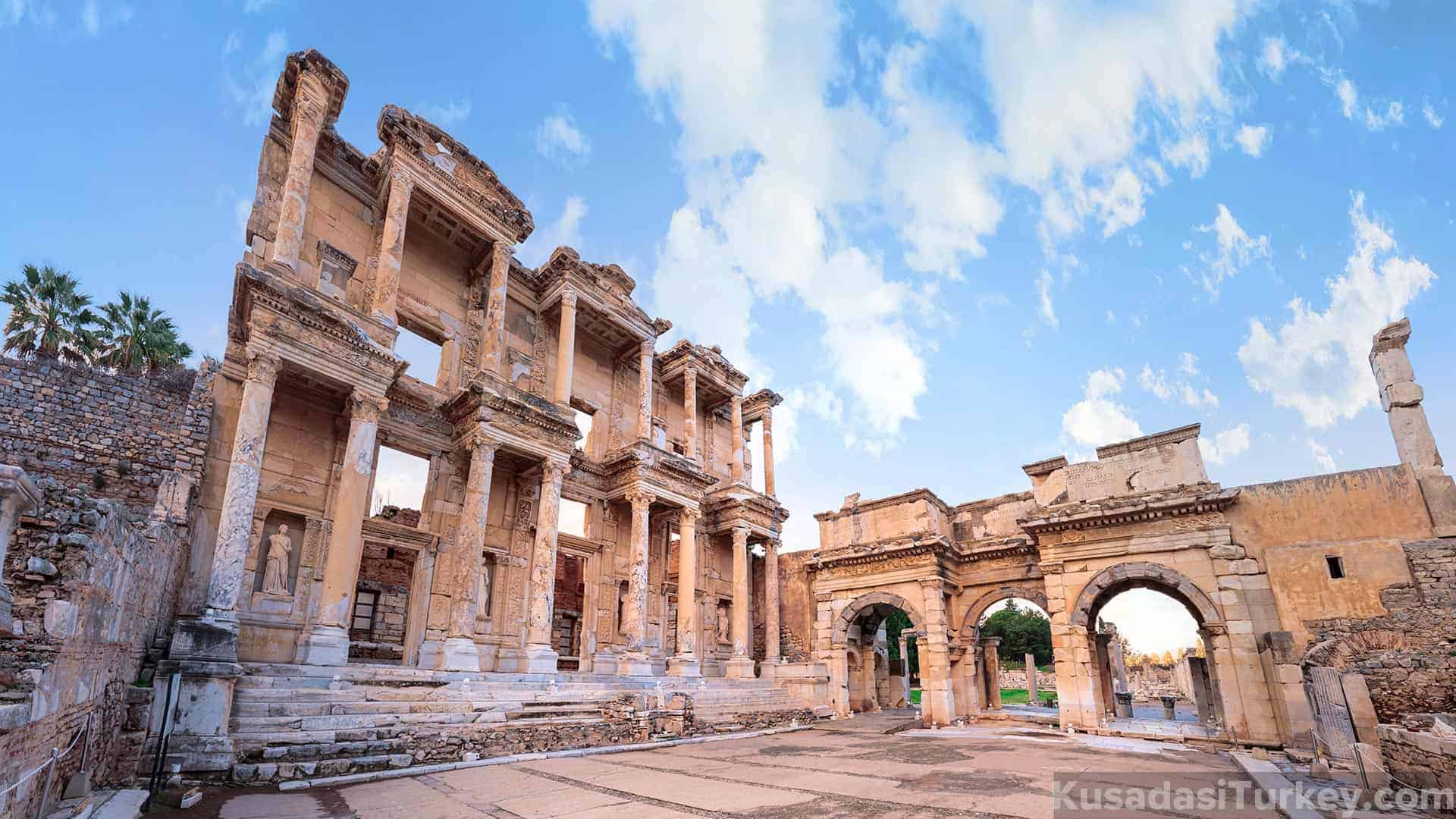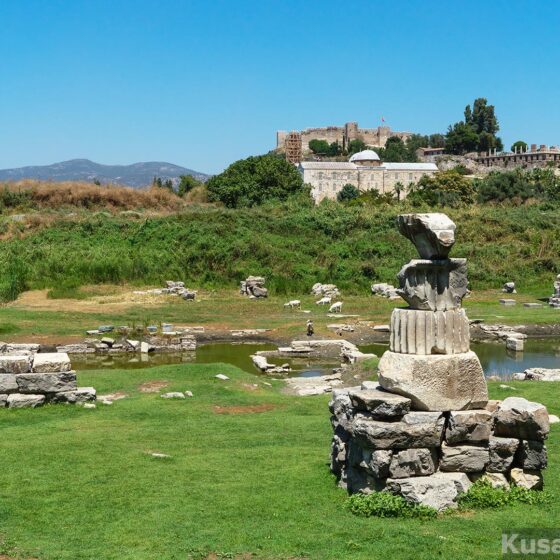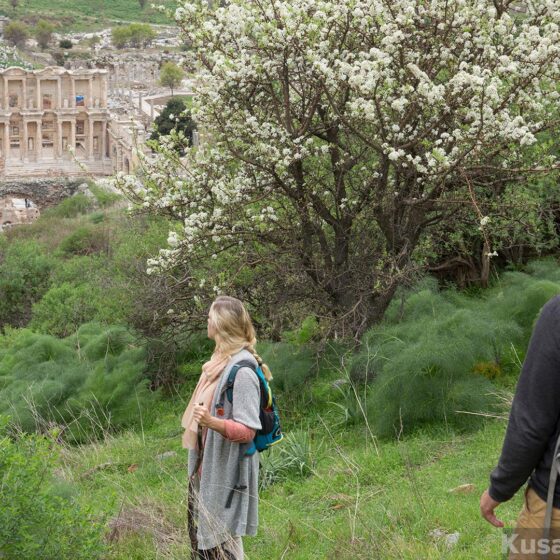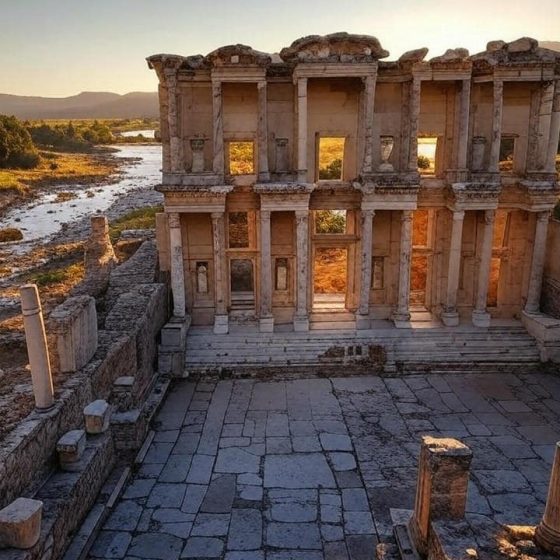Ephesus, the ancient Greek city on the west coast of modern-day Turkey, holds an unparalleled historical significance that echoes through the ages. Its archaeological wealth paints a vivid picture of life in antiquity, telling tales of grandeur, power, belief, and everyday existence.
In this blog post, we delve into the remarkable discoveries that archaeologists have made over the years, forever imprinting Ephesus on the world map.
Ephesus, the ancient Greek city on the west coast of modern-day Turkey, holds an unparalleled historical significance that echoes through the ages. Its archaeological wealth paints a vivid picture of life in antiquity, telling tales of grandeur, power, belief, and everyday existence. In this blog post, we delve into the remarkable discoveries that archaeologists have made over the years, forever imprinting Ephesus on the world map.
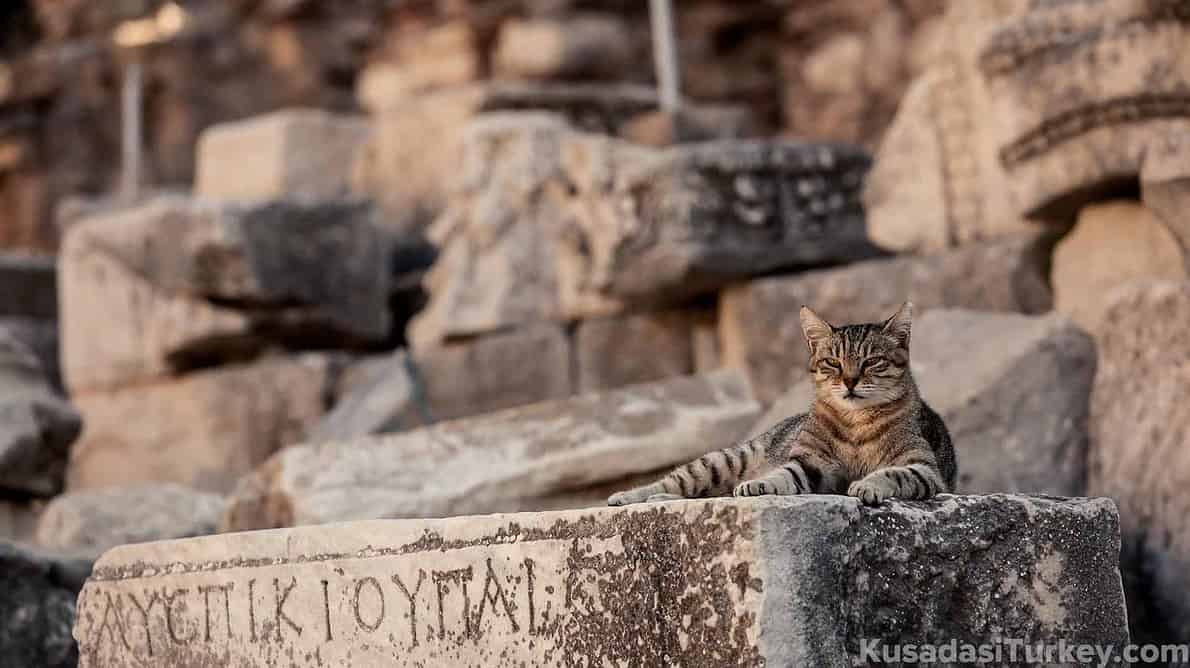
Stepping into Ephesus, the first sight that might captivate your imagination is the Library of Celsus. It once held around 12,000 scrolls and was the third-largest library in the ancient world. The discovery of the library’s facade, reconstructed from fragments found on the site, reveals the city’s love for knowledge and scholarship.
Perhaps one of the most significant finds in Ephesus is the Terrace Houses. These luxurious homes, complete with heating and plumbing systems, intricate mosaics, and beautiful frescoes, shed light on the opulent lifestyles of the city’s wealthiest residents. They are a testament to the city’s architectural prowess and are often referred to as “the houses of the rich” in Ephesus.
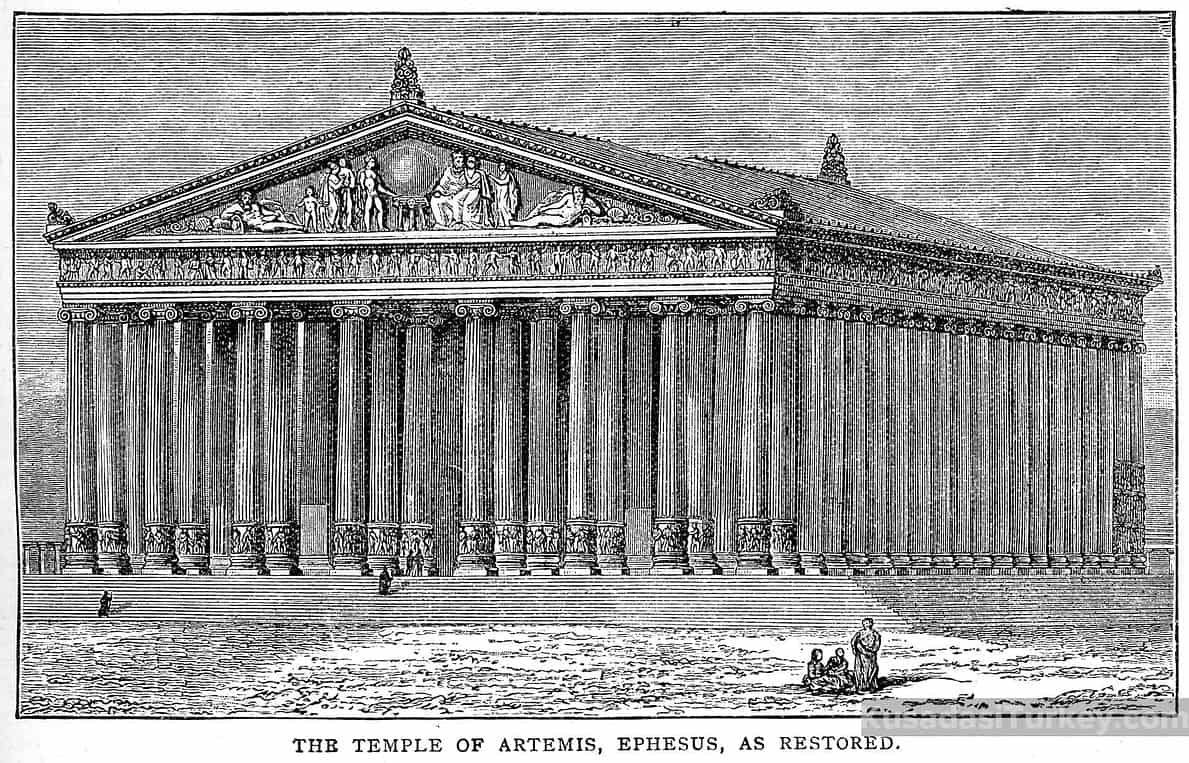
No tale of Ephesus’s archaeological discoveries can be complete without mentioning the Temple of Artemis, one of the Seven Wonders of the Ancient World. Although only a single column stands today, discoveries of sculptural fragments and architectural details have helped historians reconstruct its awe-inspiring appearance and understand its religious significance.
The Great Theater of Ephesus is yet another marvel that has stood the test of time. With a seating capacity of 25,000, it was one of the largest in the ancient world. Its discovery revealed the city’s cultural vibrancy and love for the performing arts.
The Ephesus Archaeological Museum in nearby Selçuk houses many of the smaller yet significant finds from the site. From statues and jewellery to household items and tools, these objects offer an intimate look into everyday life in ancient Ephesus.
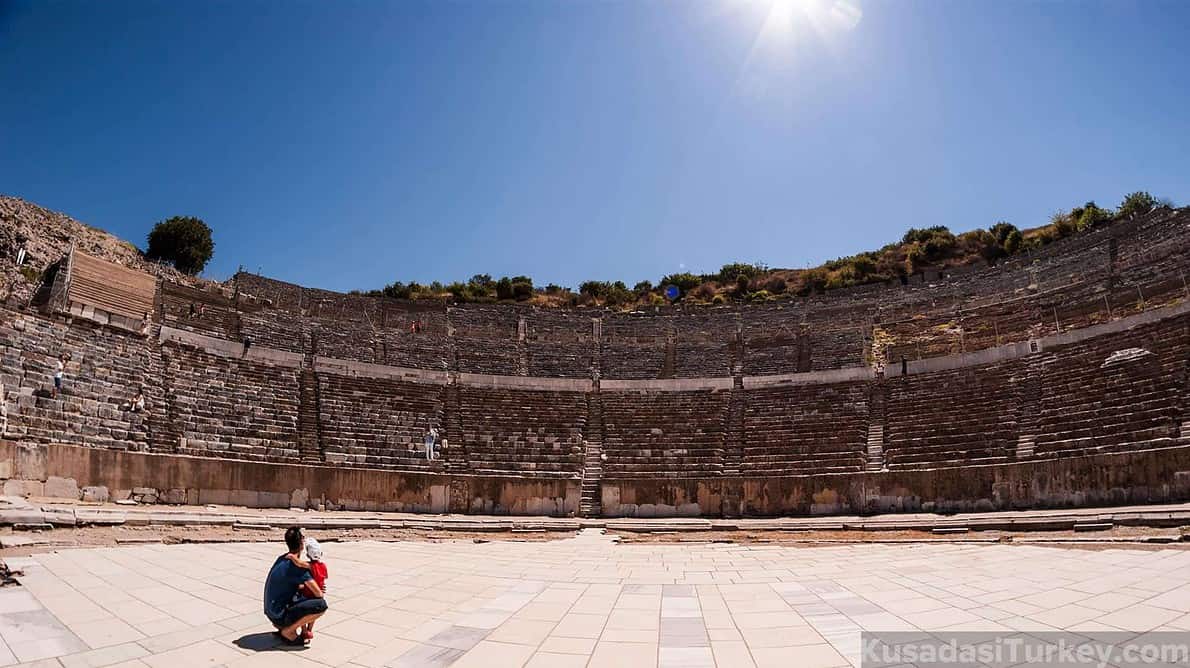
The site continues to yield new discoveries. In recent years, archaeologists have unearthed a gladiator graveyard, providing insights into the city’s passion for gladiatorial games. Also, the ongoing excavation of Harbor Street promises to reveal more about the city’s commercial life and its once-bustling port.
Every piece of Ephesus unearthed, every artefact brought to light, adds a new chapter to the city’s fascinating narrative. As archaeologists continue to dig deeper into Ephesus’s historic layers, we can only anticipate the future findings that will add more depth to our understanding of this city that was once a beacon of civilization.
Ephesus is not just an archaeological site; it’s a journey back in time. As we uncover its hidden secrets, we’re reminded of the human stories etched into every stone. Unearthing Ephesus is unearthing our shared past – a task that continues to inspire historians, archaeologists, and travellers alike.
Last updated on February 10, 2024

